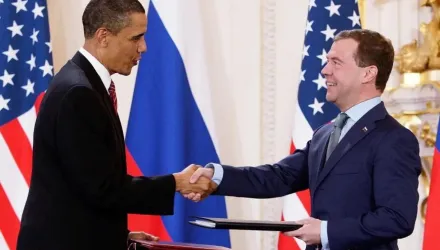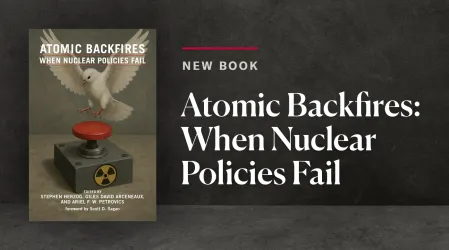Transcending Mutual Deterrence in the U.S.-Russian Relationship
Russia and the United States ceased being mortal enemies with the end of Cold War. Yet a relationship based on the constant threat of mutual nuclear annihilation persists. Researchers from Harvard’s Belfer Center for Science and International Affairs and Russia’s Institute for U.S. and Canadian Studies teamed up in 2012 to write a report which explores whether their two countries can transcend the state of mutual deterrence. Even as this report was being written and edited, U.S.-Russian relations have warmed and chilled. The report, which will be presented at this seminar, assesses the central and enduring interests of the United States and Russia, the extent to which they coincide or conflict, and discerns whether or not in light of these interests mutual deterrence should remain a fundamental feature of the relationship.




